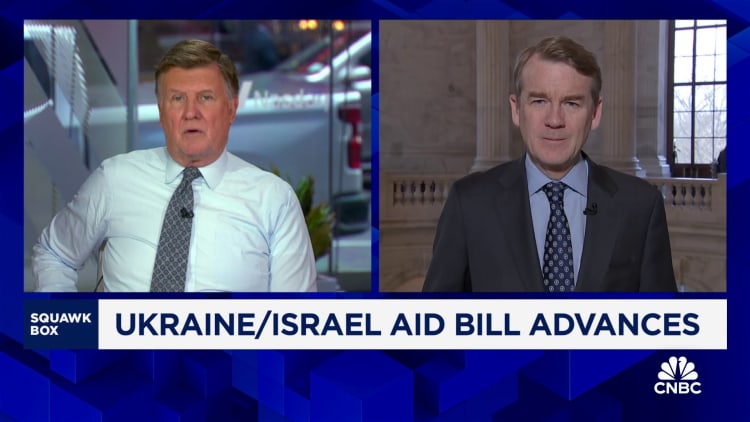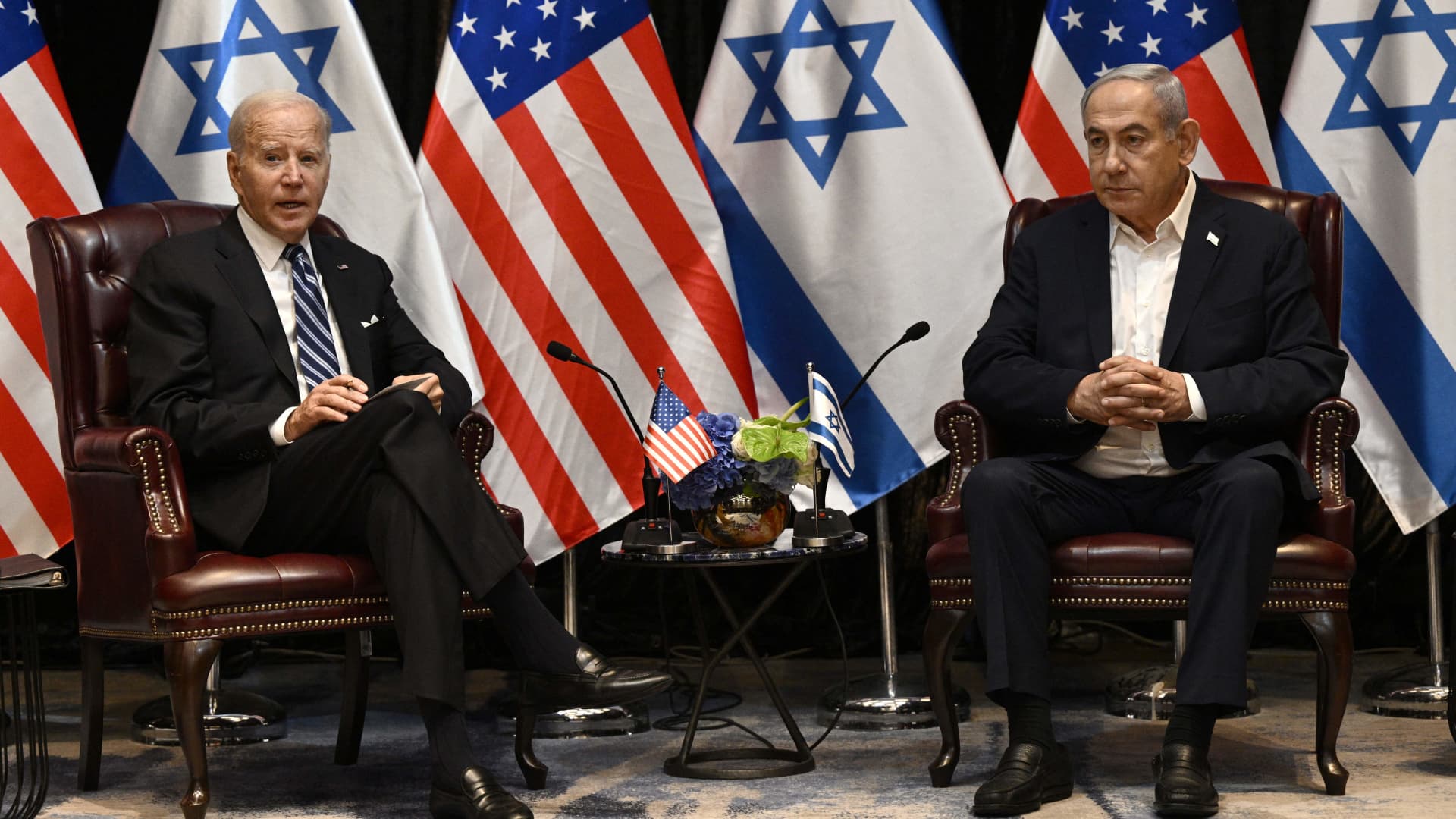President Joe Biden (L) listens to Israel’s Prime Minister Benjamin Netanyahu as he joins a meeting of the Israeli war cabinet in Tel Aviv. U.S. President Joe Biden on Thursday again told Israel’s Prime Minister Benjamin Netanyahu that he should not proceed with military action in Rafah without a credible and executable plan to protect Palestinian civilians, the White House said.
Brendan Smialowski | Afp | Getty Images
U.S. President Joe Biden on Thursday again told Israel’s Prime Minister Benjamin Netanyahu that he should not proceed with military action in Rafah without a credible and executable plan to protect Palestinian civilians, the White House said.
The call between the two leaders on Thursday was the second time in less than a week that Biden warned Netanyahu about moving into the southern part of the Gaza Strip without a plan to ensure the safety of some 1 million people sheltering there.
They also spoke about ongoing hostage negotiations and Biden pledged to continue to work around the clock to help free the hostages, who have spent 132 days in Hamas captivity, according to the White House read out of the call.

Israeli forces said on Thursday they had raided the biggest functioning hospital in Gaza, an incursion that raised fresh alarms over the fate of hundreds of patients and medical workers and the many displaced Palestinians who had sought shelter there from the war.
Fighting at the hospital comes as Israel faces growing international pressure to show restraint, after vowing to press its offensive into Rafah, the last relatively safe place in Gaza.
Earlier this month, Biden said Israel’s military response in the Gaza Strip had been “over the top” and expressed grave concern over the rising civilian death toll in the Palestinian enclave.
The war began on Oct. 7 when Iran-backed Hamas sent fighters into Israel, killing 1,200 people, mostly civilians, and seizing 253 hostages according to Israeli tallies.
Israel’s air and ground offensive has since devastated tiny, crowded Gaza, killing 28,663 people, also mostly civilian, according to health authorities, and forcing nearly all its more than 2 million inhabitants from their homes.

